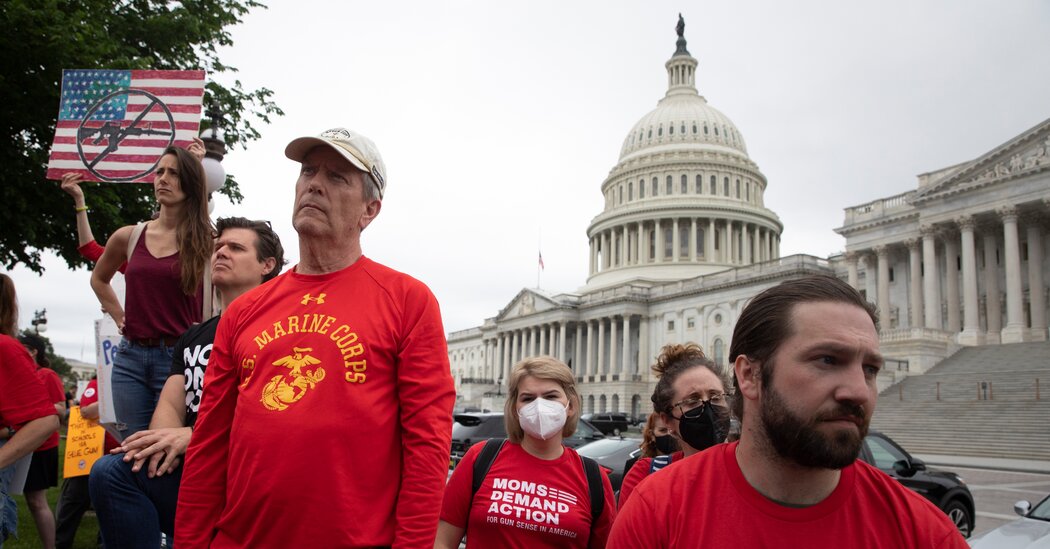
“We know we can pass legislation that will be supported by 88 percent of Americans, for example in the case of background checks, but we need to have 60 votes in the Senate for that to become law,” he said.
If it fails, he said, voters will have the last word in November at the ballot box.
But many Democrats simply do not believe Republicans are willing to negotiate in good faith, even after the heartbreak of Uvalde. Republicans insist that protecting individual liberty is more important than a collective response to gun violence, then push to criminalize abortion, said Senator Elizabeth Warren, Democrat of Massachusetts.
“This is about a set of far-right views that entail using the government aggressively when it advances their agenda and leaving the government behind when that’s what gets them as far as they want to go,” she said, adding, “These are not people of principle.”
How this plays out in November’s midterm elections is unknown. With voters most concerned about inflation, gas prices and anger at the ruling party in Washington, the nonpartisan Cook Political Report downgraded the Democrats’ chances of holding the House again on Thursday, predicting a Republican pickup of between 20 and 35 seats.
That result would give the Republican Party one of its largest majorities in decades. In turn, Republican leaders would declare a mandate to relax regulations on gun ownership, not tighten them.
Those political prospects could inform how willing Republicans will be in the coming days to compromise on gun rights, an issue that has become central to their party.
“It’s one thing to say that, regardless of the facts, you should just do something,” said Senator Mike Rounds, Republican of South Dakota. “The question is whether something you would do would actually make a difference.”




